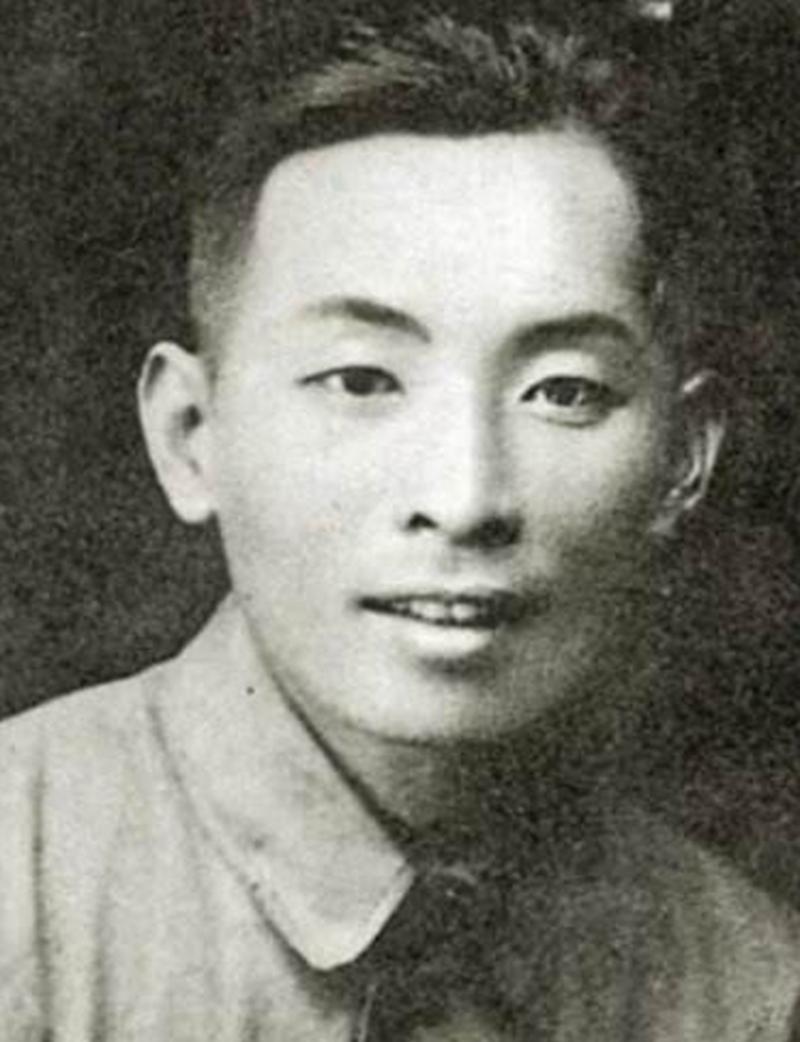Fuzhou Military Region was once one of the major military regions of our army and was formally established in 1956. After the establishment of the Fuzhou Military Region, Ye Fei became the first commander and political commissar, and in 1957, Han Xianchu succeeded Ye Fei as the second commander of the Fuzhou Military Region, after which Ye Fei became the political commissar of the Fuzhou Military Region.

After the beginning of the ten-year special period, As the political commissar of the Fuzhou Military Region, Ye Fei was shocked, and after that, the work of the political commissar of the Fuzhou Military Region was entrusted to the responsibility of the second political commissar Liu Peishan, but liu Peishan was not appointed as the political commissar of the Fuzhou Military Region until 1969, when the superior appointed General Zhou Chiping as the new political commissar of the Fuzhou Military Region. So, what is the story of Zhou Chiping?
Zhou Chiping was born in 1914, a native of Jiangxi, born in a poor peasant family, when she was a child, her family was poor, Zhou Chiping only studied in private school for three years, and then dropped out of school because she had no money. During the period of the agrarian revolution, Jiangxi was the hometown of the revolution, and Zhou Chiping also began to participate in the peasant movement, and entered the peasant Red Guards to join the wave of the agrarian revolution.
In 1931, at the age of 17, Zhou Chiping officially joined the Red Army. After joining the Red Army, Zhou Chiping made rapid progress, and after several battles, he became a squad leader, after which he successively served as a platoon leader, a company political instructor, etc., followed the Red Army to participate in the anti-"encirclement and suppression" and long march in the Central Soviet Region, and successfully reached northern Shaanxi and won the victory of the Long March.
After the outbreak of the War of Resistance Against Japanese Aggression in an all-round way, Zhou Chiping's unit was reorganized into the Eighth Route Army, and Zhou Chiping first entered the Anti-Japanese War to study, and soon after followed the Eighth Route Army's eastward column to Shandong, participated in the creation of the Shandong Anti-Japanese Base Area, and remained in the Shandong Military Region of the Eighth Route Army, serving as director of the Political Department of the Luzhong Military Region, and witnessing the victory of the War of Resistance Against Japan.
After the victory of the War of Resistance Against Japanese Aggression, Zhou Chiping went to the northeast and participated in the opening up of the northeast base area. During his time in the northeast, Zhou Chiping attracted Lin Biao's attention because his views on the situation in the northeast coincided with those of Lin Biao at an enlarged meeting of the Central Military Commission, after which Zhou Chiping was promoted very quickly, and under Lin Biao's promotion, he successively served as the political commissar of the Tenth Column of the Northeast Democratic Coalition Army and the political commissar of the Forty-seventh Army of the Four Wilds, following Lin Biao to fight in most of China and witnessing the birth of new China.
After the founding of the People's Republic of China, Zhou Chiping entered the Korean War and served as the political commissar of the Air Force of the Northeast Military Region and the political commissar of the Air Force of the Volunteer Army, leading the Air Force to make outstanding achievements in the Korean battlefield and playing a prestigious name. When he was awarded the rank in 1955, Zhou Chiping, then 41, was awarded the rank of lieutenant general and became a founding lieutenant general. Some time after the award, Zhou Chiping voluntarily applied to work in the local area, and he transferred to Yunnan, where he served as secretary of the Secretariat of the Yunnan Provincial Party Committee and other positions, in charge of industrial construction in Yunnan.
In 1969, at the age of 55, Zhou Chiping was appointed political commissar of the Fuzhou Military Region, and it was also during his tenure as political commissar of the Fuzhou Military Region that Zhou Chiping was dismissed from her post. It turned out that in April 1960, Zhou Chiping published an article in the magazine "China Youth" entitled "Comrade Lin Biao during the Northeast Liberation War". This article was written by Zhou Chiping based on her experiences when she was in contact with Lin Biao during her time in the northeast. In January 1971, this article was reprinted by the Xinhua Bookstore in Fujian Province in hundreds of thousands of copies, unfortunately, the September 13 incident occurred that year, and Zhou Chiping's article was also identified as cooperating with the parties involved in the 913 incident to engage in propaganda, so after the 913 incident, Zhou Chiping, who was 57 years old at the time, was dismissed from his post and isolated for review.
In 1982, the People's Liberation Army Military Procuratorate decided to exempt Zhou Chiping from prosecution, and Zhou Chiping was a hero of the revolutionary period, in any case, he contributed to the revolution that year, so the organization still did its best to ensure Zhou Chiping's life. After Zhou Chiping was exempted from prosecution, Zhou Chiping retired from active duty and was placed in Lanzhou according to the cadres at the prefectural and division level, and her life was properly guaranteed. In her later years, Zhou Chiping lived mainly in Lanzhou, and died of illness in 1990 at the age of 76.